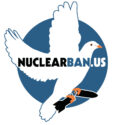Neville Chamberlain waves his agreement with Hitler, September 1938. PHOTO: public domain, national archives of Poland
On September 30th, 1938, British Prime Minister Neville Chamberlain returned to London from a meeting in Munich with Adolf Hitler. He proudly waved a piece of paper with Hitler’s signature on it in front of the crowds awaiting his arrival and boldly proclaimed that he had secured “peace for our time.” Just one year later, Britain and Germany were at war, and tens of millions across the globe would be dead by the end of it.
Hitler’s signature was clearly not worth the paper it was written on, and Chamberlain went on to be ridiculed and disparaged as the man who “appeased” Hitler. Appeasement is a term of abuse still used today to imply weakness and naiveté in the face of a powerful enemy determined to crush you. It is the one thing that all US and Western European politicians want to avoid being accused of in relation to Russian President Vladimir Putin.
Whether Putin can be compared to Hitler, or Ukraine in 2022 can be compared to Czechoslovakia in 1938 is not the real question. The question that needs to be asked today is whether “appeasement” is really the terrible thing it is made out to be, now or in the past.
In 1938, Chamberlain avoided war with Germany by giving Hitler what he wanted, which in that case was the Sudetenland, a German-speaking part of Czechoslovakia. That was clearly a dirty deal for the people of Czechoslovakia, who were not even party to the negotiations over what would happen to their country. But let us just pause for a moment to ask what the alternatives were.
Hitler was clearly going to take over the Sudetenland, whether Britain or France agreed to it or not. So for Czechoslovakia, the outcome would have been the same no matter what took place in Munich. What was at stake in September 1938 was whether Britain and France would declare war on Germany for doing so. Since the war started a year later, the only difference appeasement actually made to the outcome of war was to postpone it by a year.
Historians differ on who they think that one year of peace benefitted the most. By all accounts, Britain was not at all ready for a war with Germany in 1938, so that extra year bought them some valuable time in terms of both their military build-up and their efforts to prepare the general public for another war. Germany, on the other hand, by gaining more territory and resources ahead of a declaration of war, was only further strengthened for war during that year of so-called “peace.”
In neither case can it be said definitively that by delaying the official onset of World War II by one year the outcome of that war was altered in any significant way. The fact is that Britain and Germany went to war, along with most other countries in the world, and that war was long, vicious and hugely destructive of lives and properties. World War II would clearly have taken place, and whether it had started in 1938 instead of in 1939 is probably immaterial to the final outcome of that war.
But more importantly, in relation to charges of “appeasement” today, what exactly is the alternative to what people label appeasement? Appeasement in 1938 merely delayed the second world war by one year. The only real alternative to appeasement in that case would have been to go to war a year earlier.
Today we live in the age of nuclear weapons and “mutually assured destruction.” Another world war, no matter when it starts, would not kill tens of millions but hundreds of millions – if not billions – of people. So the issue is not whether to delay such a war by a year or longer, the issue is how to ensure such a war never takes place. The human race simply cannot afford another world war that few if any will survive.
So what does “appeasement” mean in the context of mutually assured destruction? If appeasement is understood to mean the avoidance of war, there is clearly no alternative to appeasement. Fighting a nuclear war with Russia to avoid making any concessions to Putin is like burning down your own house to make sure no one can steal anything in it.
We can, and we must, do better than that. It is our own myths and delusions that hold us back from finding creative solutions to problems like Ukraine. To label any and all efforts to negotiate a ceasefire or peace agreement with Putin “appeasement” is to pretend that there is an alternative to negotiations that does not involve nuclear war. And to continue to parade Neville Chamberlain as the worst kind of traitor is to misunderstand and misrepresent history.
Yes, perhaps Chamberlain was naïve and foolish to think he could count on Hitler’s word that he would take his ambitions no further if peacefully given a little slice of Czechoslovakia. But that doesn’t mean Chamberlain was wrong to negotiate with Hitler nor does it mean that delaying war was necessarily worse than starting a war then and there.
Now is the time to re-think our attitudes to negotiation, even if we think we are negotiating with another Hitler.





